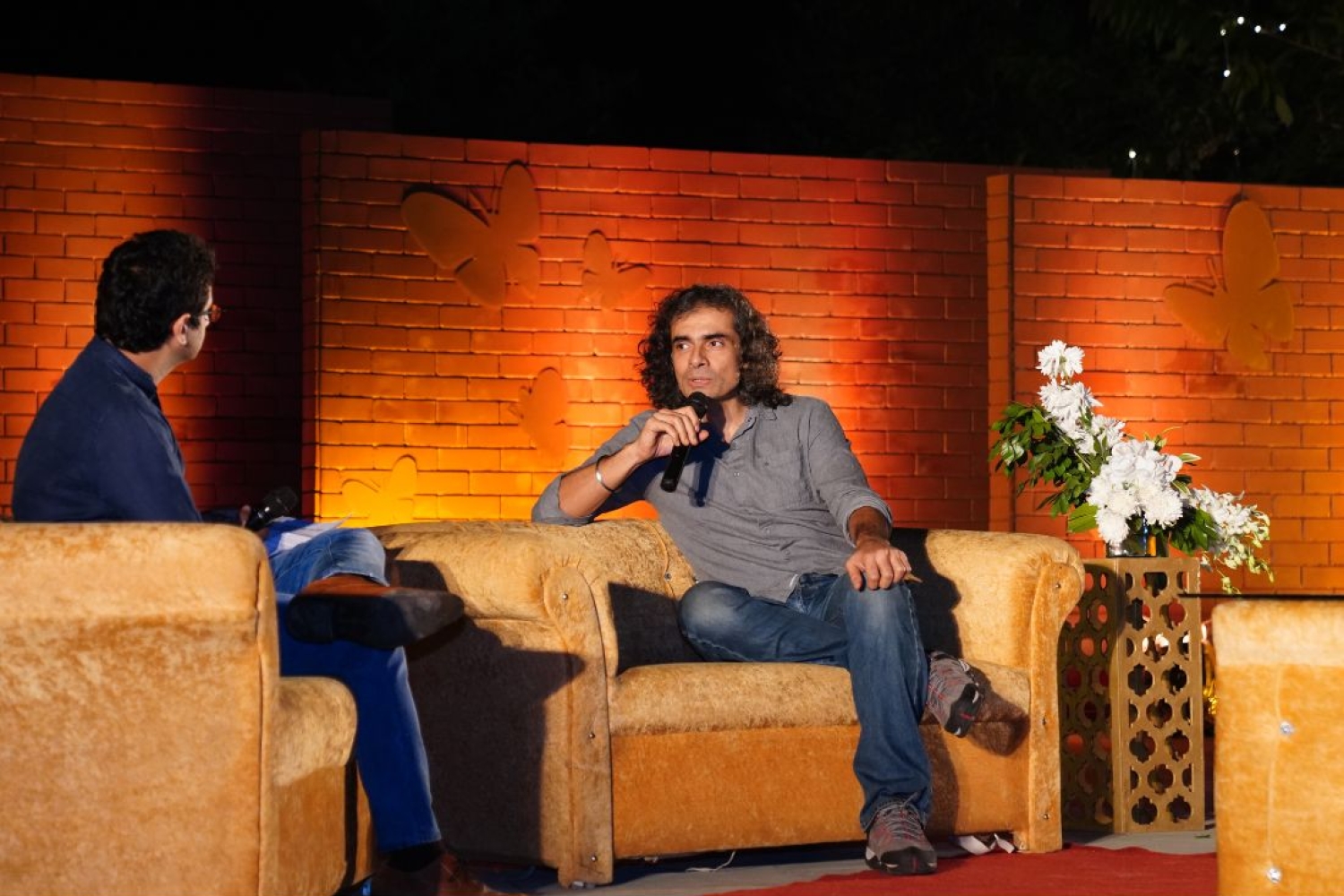

The Dehradun Literature Festival (DDLF) is a vibrant annual event that brings together writers, thinkers, artists, and creators from diverse fields to engage in thought-provoking discussions, workshops, and performances. Established in 2017 by Samraant Virmani, the festival was conceived as a platform to foster literary and cultural dialogue in Dehradun, a city known for its educational heritage and rich literary history. Set against the scenic backdrop of the Doon Valley, the festival has grown into a significant cultural gathering that attracts a wide audience, including students, educators, authors, filmmakers, and general audiences interested in literature and the arts. The festival's mission is to create an inclusive space where literature, cinema, and societal issues intersect, sparking conversations that resonate with both local and national communities.
In this interview, we sit down with Samraant Virmani, the founder of the festival, and Saumya Kulshreshtha, its director and curator, to discuss the origins of the festival, its evolution, and the vision behind its continued success.
What inspired you to establish the Dehradun Literature Festival, and how has the festival evolved over the years?
Samraant Virmani: I have roots in Dehradun, and I come from this community and this state. Dehradun is often regarded as the education capital of the country in many ways, and it also has a rich literary history. If you look around, you'll see the literary wealth of this region, nestled in the foothills. So, it felt like the right place to create a platform for conversation—especially one that brings together writers, educators, and artists.
Our initial intention was to bring the world to Dehradun and provide the local community, especially the youth, with the correct exposure and nurturing. We wanted to go beyond the classrooms and textbooks and offer a deeper understanding of the world we live in and the world we are moving into. The festival is aimed primarily at the younger generation, and we've been very encouraged by how well it has been received over the years.
Over time, we've ensured that the festival is not just a one-off event but a meaningful, annual gathering. I'm proud to say that the Dehradun Literature Festival, which started in 2017, has truly become a part of the community. It's now a beloved event that people look forward to, and the community has wholeheartedly adopted it as their own celebration. We are committed to making it grow and continue to serve its purpose—to enrich the local cultural and literary landscape.
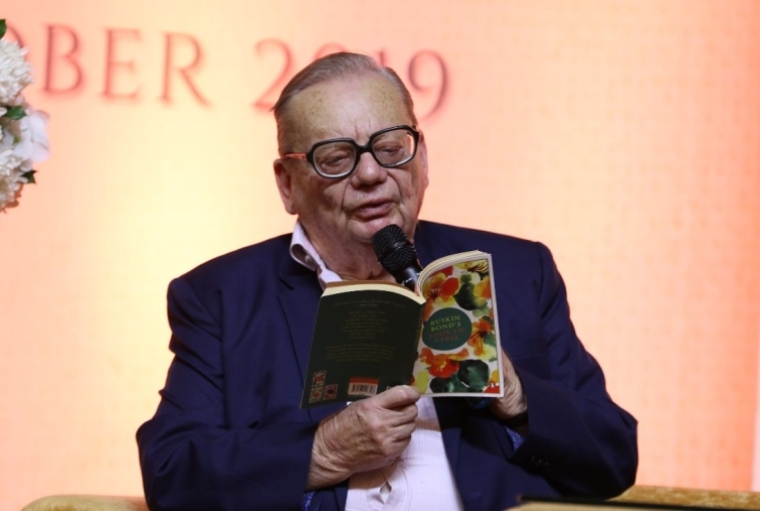
With so many distinguished speakers and artists participating in the festival, how do you select the right mix of voices for the festival? And how do you ensure there's diversity in programming?
Saumya Kulshreshtha: We dedicate long hours to research in order to understand what is most relevant in the current cultural and literary landscape. We also keep track of the context of the region, ensuring our programming aligns with both the needs of the community and the festival’s foundation. Our goal is to position content that is not only relevant but also encourages thought-provoking, sensitive conversations.
I’m not just speaking about the books featured at the festival; I can walk you through the entire programming to show how we curate diverse voices and perspectives. One of the key strategies is creating an umbrella theme for each year. This year, for example, we have Sahitya, Cinema, Samaaj. We aim to ensure that there are multiple entry points for different audiences—so the festival doesn’t just become an event for one particular group or culture. We want it to be an event for everyone.
Why Sahitya and Cinema together? As a literature festival, literature is naturally central to what we do. We discuss the importance of reading for both the young and the old, and how stories form the foundation of human experience, ideas, and societal consequences. But literature is not limited to books; it exists in many forms, including visual media. India, with its rich tradition of storytelling, is a perfect place to integrate cinema as a form of visual literature. The impact of visual storytelling on people is profound, and we must also explore how literature goes beyond the written word to connect with broader social contexts.
The third pillar is Samaaj. We don’t want to limit the conversation to abstract theories. We aim to connect literary discussions with real-world issues, addressing the causes and concerns facing society today. This makes the festival not just a celebration of books, but a way to bring theory to life through conversations that are relevant to contemporary India.
In addition to these core themes, we make sure there’s diversity in language and representation. For instance, while much of the discourse happens in English, we ensure that regional languages like Hindi, Urdu, and Punjabi are included. We even have a session called Bazm-e-Urdu that explores the ownership of the Urdu language and its cultural significance—not just as a language, but as a cultural symbol.
We are particularly excited this year about the inclusion of Punjabi voices, especially after the loss of the prominent poet Surjit Patar. His son will be joining the festival to perform his kalam, and we are taking this opportunity to discuss his father’s legacy. A significant film songwriter from Punjab will also talk about the political values of the region’s historical leaders and how these values have evolved.
Furthermore, we honor our Uttarakhand heritage by instituting an award named after Shivani, a Kumaoni author and perhaps the most holistic voice from the Uttarakhand mountains. This year’s recipient of the Shivani Award is Manjula Rana, a distinguished author who continues the legacy of this unique literary tradition.
This year, we are particularly proud of the large number of gender-focused panels. The sessions will tackle feminism in contemporary India, addressing its practical application in society and exploring how feminism intersects with various social realities. We also have an exciting panel titled Women Writing Women, which brings together filmmakers Leena Yadav, Sutapa Sikdar, and Atika Chohan. The panel will explore how women create women characters in film, compared to the way male filmmakers portray women. The Dawn of the Indian Body is another important panel focusing on women’s agency and empowerment. Featuring Anupama Chopra and Sandhya Mridul, this session will explore how women are claiming their right to space, autonomy, and recognition in society.
We also have a Queer Panel, where intellectuals like Dr. Aqsa Shaikh, Rohin Bhatt, K. Vaishali and Kinshuk Gupta will discuss how identity is shaped and narrated in literature and society. Ultimately, we strive to ensure diversity in every aspect of our programming—from language to representation, to themes and voices.
SV: We have, for forever, been inviting people from the cinema industry, because I personally believe that directors are also contributors to literature. They contribute to literature in their own way. It might not be literature in the traditional sense, but it’s a form of literature that everyone can engage with. What I believe is that films are a part of literature because they come from that same tradition. Before films existed, when there was no cinema, stories were told through street drama. Back then, films didn’t exist.
Now, the theatre industry has certainly declined, and films have taken over. But isn’t it the same? The literature remains the same, and it gets adapted into films. Similarly, literature was once adapted into theatre. The live dramas might not be as prominent now, but the literature is still there. If William Shakespeare were writing today, I’m sure there would be at least ten films based on his works. We’ve always been involved with cinema. People often said we should connect literature with cinema, and that’s exactly what we’re doing. This is what we believe, and this is how we present it. We emphasize cinema as much as we can. And ultimately, it comes down to this: the experience we have from these festivals, from the cinema, and from the literature we adapt in our day-to-day lives.
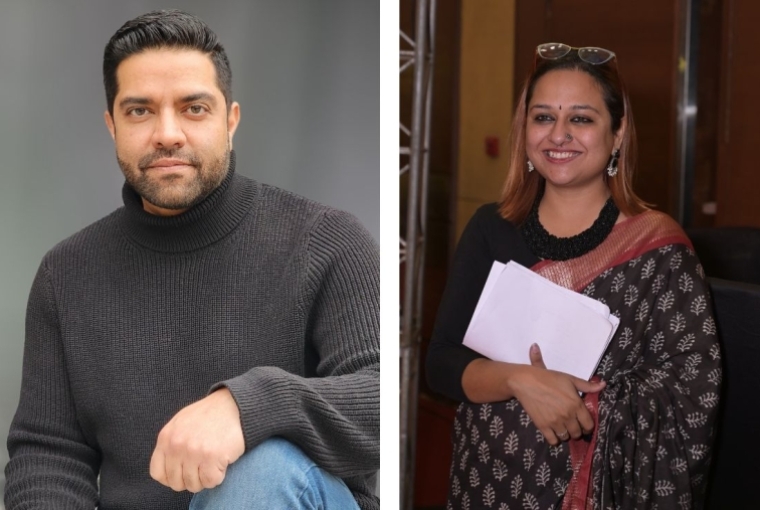
Samraant Virmani (left) | Saumya Kulshreshtha (right)
What has been the biggest challenge in organizing such a multifaceted event, and how have you worked to overcome those challenges?
SV: Well, why would it even be a challenge? People flock to the festival because the culture of Dehradun has always been very welcoming and diverse. The city is a conglomerate of educated individuals, and with Dehradun being regarded as the education capital of India, many people here are well-versed, even in English. If you speak to a local shopkeeper, for example, they’ll likely respond in English. That’s the kind of community we have here.
So, when we first started, it didn’t feel like a challenge at all. The fact that Dehradun is considered the education capital of the country, yet didn’t have a dedicated literary festival, was itself a reason to create one. In 2017, we asked ourselves, “Why shouldn’t we have something like this here?” There are so many teachers, so many students, and a real thirst for intellectual and creative engagement. We thought it would be wonderful to bring the community together through the medium of literature, and the response has been overwhelmingly positive since day one. People genuinely flock to the festival, and it has been a place where everyone—authors, publishers, artists—has contributed without hesitation.
What has made it even easier is the support we've received from all corners: from the artists, the local community, and even the media. The media also has been incredibly supportive from day one. Everyone involved has come together to create an event that truly feels like a community effort, and that support has made overcoming any potential challenges much more manageable.
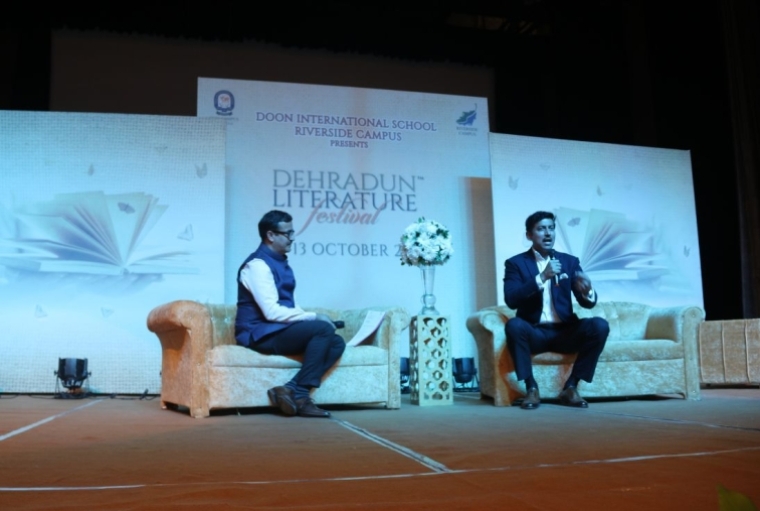
This year marks the sixth edition, what has been the most rewarding aspect seeing this festival grow and flourish?
SV: The most rewarding part has been the moments that were created. There was one of the instances which I still remember—there was a DGP and a crime novelist on the stage and they were speaking about crime. When we opened up the conversation for the general public to ask questions, one girl got up and said that I have a question to the DGP. I was molested by my uncle when I was about 13 years old and now I am 20. Can I still file an FIR against him? The lovely answer he gave was that after this you meet me backstage and we will make sure that we are filing the FIR and that FIR was actually filed in like 20 minutes. So this is one of the moments and there are plenty more moments like this, which have happened here. It's a full bouquet of knowledge. The students and the young generation is there to ask questions.
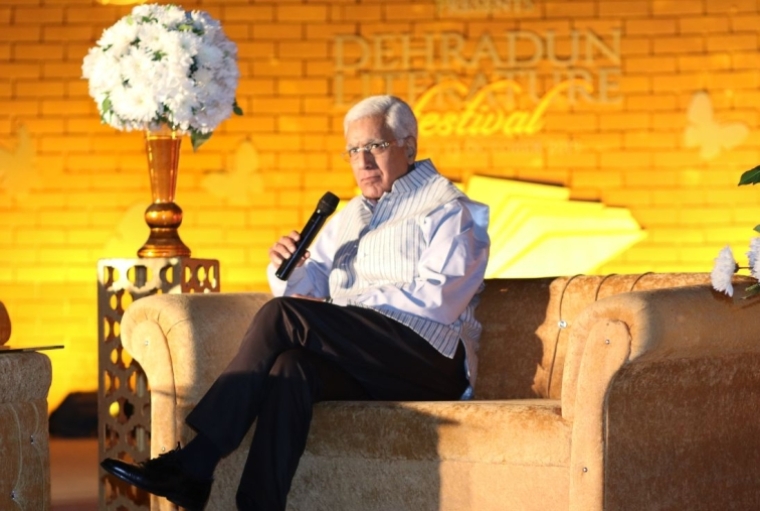
Lastly, what do you hope attendees will take away from the festival experience?
SK: I hope they take away all the beautiful things that have made humanity meaningful for so long. I’m hopeful they’ll walk away with new ideas, inspiration, and, most importantly, a sense of gratitude.
They will encounter people and ideas that will leave them with a positive energy. They might not always realize it, but I believe they will feel like they’ve made a good choice in being there. In the end, I hope that attendees will leave with the feeling that they've experienced something that connects them to the best of humanity—within the world of words, facts, and core human values. That, I believe, is what people will take away from this experience.
We were having a conversation at our festival with four students from schools in Dehradun. These students were from grades 9 through 12. Today, sitting down with them, one girl—Gurjeet, who is the first moderator—asked me two questions that I didn’t have answers to. She said, “What if I’m not able to create the kind of questions that you want? And can I ask questions about simplicity in life?” I was completely stumped. The kind of cerebral insight that little girl had was amazing. It’s all about the thought process and what comes from it.
Words Paridhi Badgotri
Date 07.11.2024